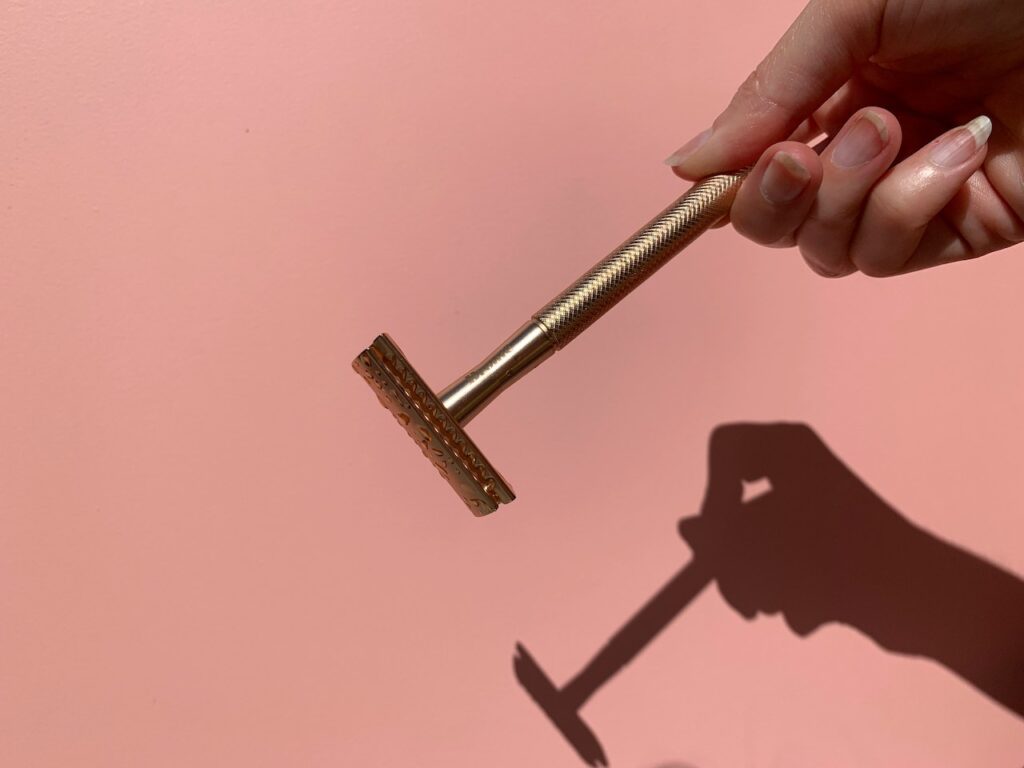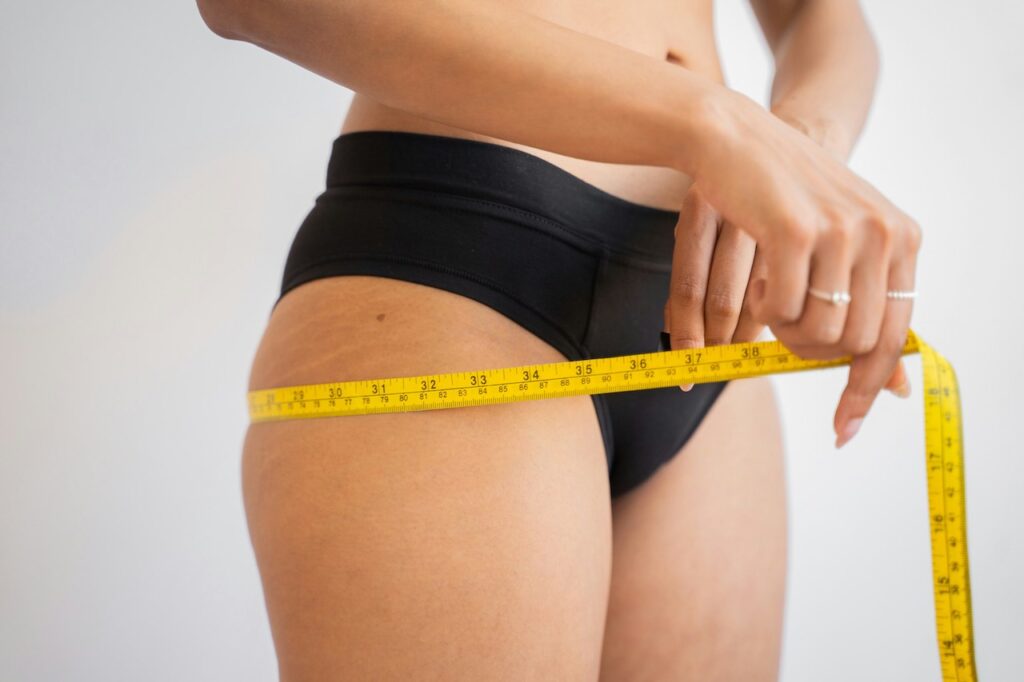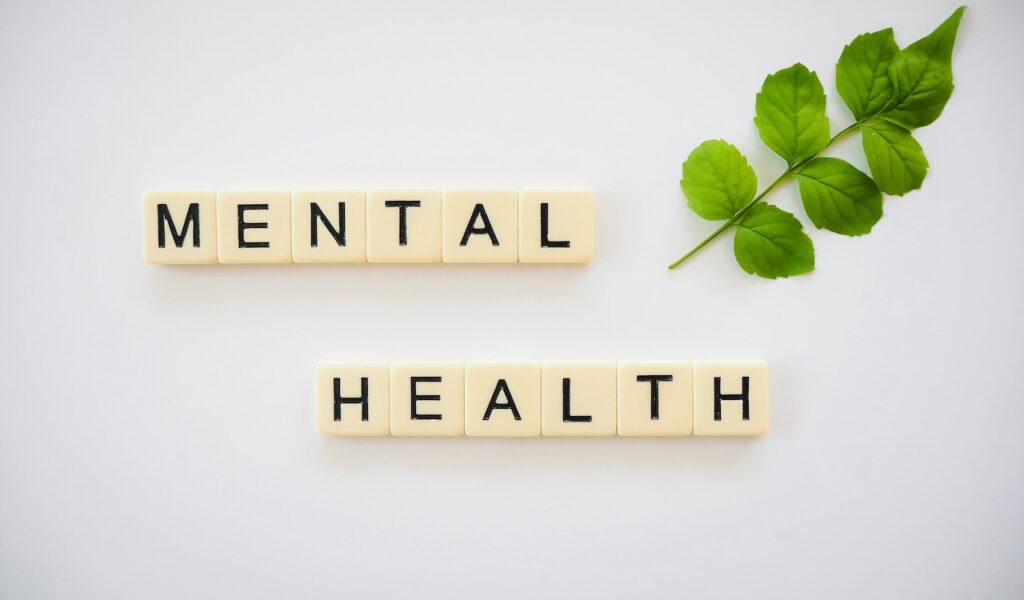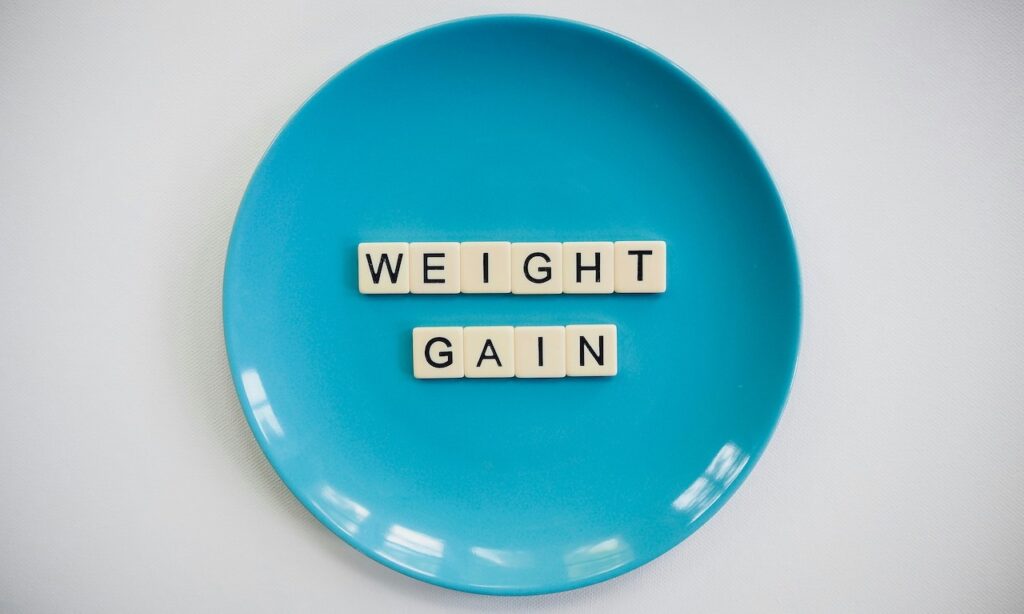One of my earliest body shaming memories occurred at lunch during my freshman year of high school. Nothing traumatic happened, and I can’t even recall what prompted it. But I vividly remember sitting outside on a picnic table and looking down at my thighs as they rested on the bench. I thought to myself, “When and how did they become so large?” My body had changed at a rapid rate that year, and at times, it didn’t feel like my own. Thus began a 25 year struggle with body dysphoria.
Truthfully, I don’t know when the struggle actually began. I don’t remember obsessing about my weight before puberty, but other insecurities plagued me long before that.
In second grade, a boy in my class told me I needed to shave my legs and called me “gross.” While waiting in line for a water slide at the age of nine, a boy, a few years older than me, also described me as “gross” for not shaving my under arms.

At an even younger age, a man in Wendy’s complimented my sister’s beauty and said she had a handsome brother. That handsome brother was me.
The early onset of hair growth, being called a boy, and the label of “gross” stuck with me. I spent most of my adolescence questioning my femininity and wondering whether males would even find me attractive.
This just dawned on me, but it makes sense why my body dysphoria manifests as the word “gross.” When I see my legs and buttocks in a mirror, that’s the first word that pops into my head.
As a teenager, I compared myself to my sister and my friends. My much wider hips and propensity to accumulate fat in my thighs irked me.

Even now, my lower body appears quite large considering my habitual efforts when it comes to diet and exercise. Although, according to my husband, my thoughts do not align with reality. In fact, he pointed out my body dysphoria years ago.
What Is Body Dysphoria?
According to Dictionary.com, dysphoria is “a state of dissatisfaction, anxiety, or restlessness.” (cite)
Merriam-Webster defines “dysphoria” as a “state of feeling very unhappy, uneasy or dissatisfied.” (cite)
It follows, then, that body dysphoria describes a person’s dissatisfaction, anxiety, and/or unhappiness with his or her body.
Body Dysphoria Vs. Gender Dysphoria
When typing “body dysphoria” into a search engine, most of the results pertain to body dysmorphic disorder or gender dysphoria. In fact, many sites define “body dysphoria” as “gender dysphoria” (see an example here).
However, I strongly question the accuracy of that assertion. As explained above, “dysphoria” describes a feeling. That feeling can pertain to a wide array of matters beyond just gender.
For instance, Merriam-Webster gives an example of generalized dysphoria (manifesting as depression and a lack of energy and sex drive) caused by habitual cocaine use.
Additionally, the same dictionary has a note below its definition of dysphoria. It states: “see also ‘gender dysphoria'” and provides a hyperlink to a separate definition.
Essentially, dysphoria describes dissatisfaction and uneasiness about (fill in the blank) So someone with body dysphoria could feel uneasy about one or more body parts while feeling no uneasiness about his or her gender. Conversely, someone with body dysphoria could also have gender dysphoria.
Perhaps the confusion stems from a lack of available information on this topic. Shockingly, the internet contains very little information on body dysphoria. Maybe people refer to it using other terms like “body insecurity,” “self-image issues,” etc.
Body Dysphoria vs. Body Dysmorphia
While these two words sound similar, they have distinct definitions. Body dysmorphia is a “pathological preoccupation with an imagined or slight physical defect of one’s body to the point of causing significant stress or behavioral impairment.” (cite)
Also called body dysmorphic disorder (BDD), many well known websites refer to it as a mental health condition. Mayo Clinic describes it as a condition in which a person obsessively dwells on a perceived flaw in his/her appearance, sometimes for hours each day. (cite) The condition can make it difficult to function in daily life.

Personally, I don’t think my distorted thoughts qualify as a mental health condition, so I describe my issue as body dysphoria and not dysmorphia. However, I have not consulted a health practitioner or licensed therapist about it.
The negative feelings about my body occasionally cause stress and/or behavioral modifications (especially in the summer months when less clothes become the norm), but I don’t dwell on it for hours at a time, and it doesn’t typically interfere with my day-to-day life.
That said, I certainly sympathize with people who do struggle with body dysmorphia.
Body Dysphoria and PCOS
Unfortunately, women with PCOS encounter many symptoms that increase the likelihood of having a poor body image.
Currently, my body dysphoria mostly relates to my weight/size and what I perceive as excess adipose tissue (fat) in certain areas.

However, I have other body insecurities, as well, including the substantial hair growth on my neck, chin, and jawline that resembled a beard before years of laser hair removal. I also struggled with very poor self-image in high school due to cystic acne. Both of these issues stemmed from PCOS symptoms.
If you have PCOS symptoms that contribute to self-image issues, you’re not alone. While my body dysphoria has improved since adolescence and college, I still deal with it on a regular basis.
How Does Body Dysphoria Impact Health?
As discussed above, physical symptoms such as weight gain or acne could contribute to body dysphoria. In turn, body dysphoria negatively impacts mental and emotional well-being. Poor mental and emotional health can wreak havoc on physical health, thereby perpetuating a viscous cycle.
A holistic view of health recognizes that physical, mental, and spiritual health all impact each other. Just like our organ systems operate in tandem, so too, does our brain, body, and soul (some refer to it as the mind or spirit). When one part suffers, the other parts cannot function optimally.
Consequently, body dysphoria can cause or contribute to poor health outcomes despite sounding superficial and/or trivial to some people.
Overcoming Body Dysphoria
I wish I had a proven formula for this. I wish I could say I no longer have body dysphoria.
That said, I have managed to reduce its severity (most of the time). Based on research/education, and my own experience, I have some suggestions.
But first, I want to preface the following by clarifying that I am not a mental health expert, licensed mental health provider or practitioner, or a health practitioner of any kind. Please consult a qualified practitioner should you have any symptoms of severe body dysphoria or body dysmorphic disorder, especially if it causes other health conditions such as an eating disorder.
First, if body dysphoria stems from certain physical symptoms, try ascertaining the root cause of those symptoms. For instance, if you have cystic acne – is it caused by inflammation? A food sensitivity? A hormonal imbalance? Chronic stress?
Pinpointing the root cause isn’t always easy, but if achieved, it often becomes easier to minimize the symptom. And reducing the severity of the symptom could positively impact the mindset component.

However, minimizing or even eliminating the symptom does not necessarily resolve body dysphoria, especially for those who have lived with the symptom for a considerable amount of time.
For example, I haven’t had cystic acne for 19 years, but even now when I get a pimple, it often elicits a fear that my cystic acne will return. I also probably see the pimple as being 3 to 5 times larger than its actual size. Honestly, an acne outbreak stresses me out much more than it should (which probably makes the acne worse), and I believe it stems from those years when thick, painful nodules covered my face.
Second, cognitive behavioral therapy with a mental health professional, especially someone who specializes in this issue, could have a significant impact.
I haven’t tried this, mostly because I already attend bi-monthly therapy for anxiety. Therefore, I tell myself I don’t have time. I also tell myself that body dysphoria doesn’t impact my daily life enough to undergo therapy for it.

But, in reality, these are just stories I tell myself as a justification or an escape tactic. I realize this method could help, and therefore, I should probably try it.
Third, consistent, positive affirmations to and about your body can shift inner dialogue. Unfortunately, negative, self-shaming thoughts often run through the head of those with body dysphoria. By changing that narrative, the brain could adopt a new perspective, thereby causing thought patterns to shift.
Examples include reciting a positive affirmation every morning before brushing teeth. Or saying a positive thought out loud when passing by a mirror. The affirmations could be as short as a sentence or as long as a paragraph. Perhaps try taping it to a mirror to help with recitation but also with remembering to actually do it.

I recently started a routine of writing down or saying out loud 5 things I love about my body every night before bed. For instance, “I love that my body is athletic.” “I love that my body grew, carried, and birthed two healthy children.” You get the picture.
I plan to continue this for at least three months. I’ll provide a progress report at the end.
Fourth, I found that changing my mindset around food helped. You can learn more about that here.
Medical Disclaimer: I am not a physician or a medical professional. The content shared on jessicatrone.com is for informational purposes only, is not a substitute for the advice of medical doctors and should not be used to prevent, diagnose, or treat any condition. Consult with a physician prior to beginning any fitness, health, or wellness regimen or routine. The content on jessicatrone.com is based on the opinion and personal experiences of its author and is solely for educational and informational purposes. Jessicatrone.com is not liable for how you choose to implement and use the information contained in it.
Do you, or have you ever, struggled with body dysphoria or body dysmorphia?
Do you have tactics for overcoming or minimizing it?

be the first to comment